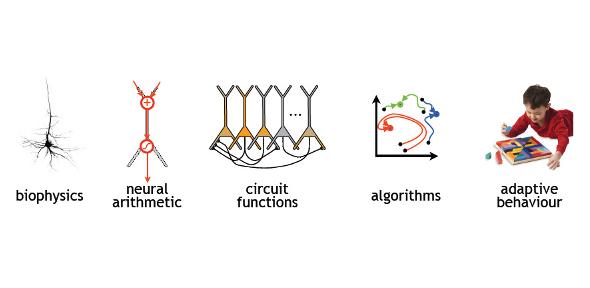
Dr Máté Lengyel from the Department's Computational & Biological Learning Laboratory is one of the first recipients of The Wellcome Trust Investigator Awards. These awards represent £56 million worth of funding for 27 exceptional researchers addressing the most important questions about health and disease. The awards will range from around £1 million to £3 million.
The researchers will be looking at ambitious and diverse research topics, from using stem cells to help the body mend itself to how physical activity during pregnancy affects a child's health in later life and understanding the underlying neurobiology of conditions such as epilepsy.
Dr Lengyel talking about his research says "If we are to make significant inroads in treating mental disorders, we need to take up the challenge of understanding how the many different levels of the nervous system interact and give rise to behaviour. At one end, we have a reasonably good understanding of (at least the basic) biophysics of molecules and membranes, and at the other end we have striking evidence of adaptive (and sometimes maladaptive) behaviour. However we know far less about the levels in between these two ends of the spectrum, the operations neurons perform on their inputs, the dynamics of neural circuits, and the algorithms they implement and in particular how these different levels interact." Dr Lengyel's winning proposal, 'Normative neurophysiology', aims to connect these levels following normative, that is optimality, principles as a guiding framework for understanding the brain.

These are particularly exciting times in neuroscience. The ever increasing sophistication of experimental methodologies give researchers insights into the inner workings of neural networks at an unprecedented spatial and temporal scale and here is where theoretical approaches of the sort Dr Lengyel is pursuing become crucial. Without rigorous theories to organise all this exciting data neuroscientists are left with only guess-work and lucky coincidences to understand how all these biophysical properties of neural circuits contribute to adaptive functioning. As Horace Barlow, a world-known neurobiologist from Cambridge, once famously put it: "A wing would be a most mystifying structure if one did not know that birds flew."
Dr Lengyel pursues a unique approach that combines mathematical rigour, always keeping in mind the functions that neural circuits must support, with care and appreciation for the biophysical details of neurons and neural circuits. His group applies cutting-edge techniques from a variety of information engineering related disciplines. The group also collaborates closely with experimental neuroscience groups both within and outside of Cambridge, to test the predictions of their theories and models, but also to inform and refine the model construction steps.
Sir Mark Walport, Director of the Wellcome Trust, says "The Wellcome Trust Investigators, together with our existing Fellowship holders, represent some of the very brightest minds in biomedical science. They are seeking answers to challenging research questions that could potentially transform our understanding of the mechanisms of health and disease.
"We are demonstrating our confidence in these outstanding individuals by providing longer-term, flexible funding; in return, we expect that they will make significant advances in knowledge in their field and act as ambassadors within the research community, helping us achieve our aim of improving human and animal health."
Prospective Investigators were interviewed by expert panels led by Professor Deborah Smith, Head of the Biology Department at the University of York, and Professor Sir Paul Nurse, President of the Royal Society.
"Throughout the rigorous selection process all of these individuals demonstrated research excellence, vision and leadership," says Professor Smith. "It was very rewarding to be involved in interviewing such an exceptional group of scientists. They are highly deserving of the Wellcome Trust's support."
Investigator Awards provide funding for scientists with an excellent track record and who are already in an established post. The awards offer the flexibility and time to enable them to tackle important research questions.
Wellcome Trust Investigators will help the Trust tackle its five major challenges, as set out in its Strategic Plan: maximising the health benefits of genetics and genomics; understanding the brain; combating infectious disease; investigating development, ageing and chronic disease; and connecting environment, nutrition and health.
An article on Dr Lengyel's work can be found at: http://www.eng.cam.ac.uk/news/stories/2011/visual_system/

